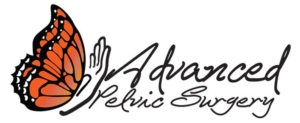Interstitial Cystitis
Interstitial Cystitis (a chronic inflammatory condition of the bladder) may have characteristics of several types of incontinence. Symptoms most often include urinary frequency, urge and some degree of bladder pain but can vary widely among patients. The source of the problem in IC is a deficiency in the protective coating on the bladder. This allows urine to contact the underlying tissues which causes pain and inflammation. An analogy would be a skillet with gaps in the Teflon coating. We are not sure why there are gaps in the protective covering but theories are that there is either a deficiency in the protective layer itself or that the body is attacking the protective layer much the way it attacks the joints and other organs in rheumatoid arthritis.
Treatment is directed toward re-establishing the protective layer, reducing inflammation, and pain relief. Standard oral treatment includes Elmiron® which helps rebuild the protective layer of the bladder, an antihistamine and an antidepressant. The antihistamine (such as Zyrtec®) is used because biopsies in patients with IC show an increased number or Mast cells, which are a particular type of white blood cell that are attracted to the site of injury by histamine. The mast cells further increase the local inflammation and pain. The antihistamine blocks histamine release and decreases the attraction of the mast cells. An antidepressant is commonly used in chronic pain to decrease the sensitivity of the brain to the chronic painful stimulus. It can also help with the depression and anxiety the often comes with IC. Oral treatment can be helpful in maintaining a remission of symptoms but it can take up to six months to reach full effect. More immediate relief can be achieved with instilling medicine into the bladder. The primary medicine is DMSO which has an anti-inflammatory effect. Other medicines that are often instilled at the same time are lidocaine and bicarbonate to make the procedure comfortable. Sometimes heparin is instilled because the protective layer of the bladder is chemically similar to heparin. The medicines are retained in the bladder 20 minutes and emptied. Treatments are usually once a week for six weeks then a re-evaluation is done to see if further treatments are necessary. Pain can be relieved with TENS (transcutaneous electrical nerve stimulation). TENS sends electrical signals which can cancel out the pain signals travelling up the nerves from the bladder to the brain. Think of it as “white noise” on a radio to drown out the annoying neighbor kid’s rap music. Another helpful treatment is Prelief® which is an over the counter food acid neutralizer. Increased acid in the urine causes more pain and irritation and Prelief® with avoidance of highly acidic foods has been shown to decrease pain in patients with IC. IC can be difficult to treat and often responds to a combination of treatments better than a single treatment alone. For more information click here.
